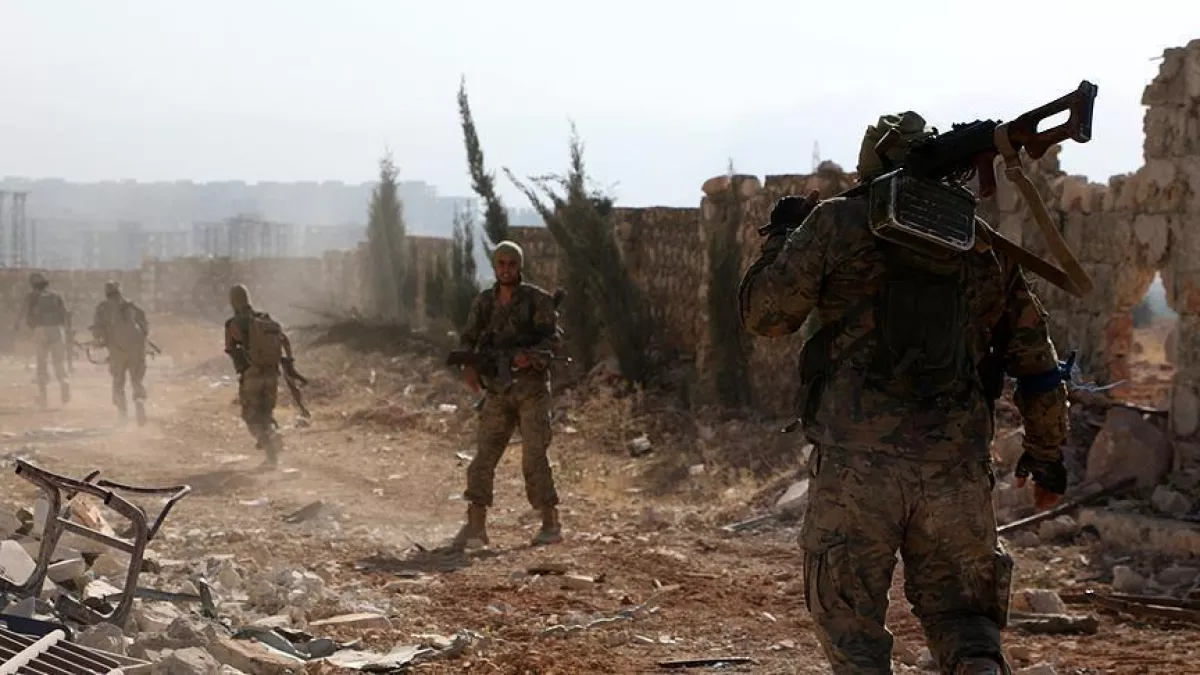Opposition forces advance, as Assad's regime faces major setback Northern Syria on fire
Videos coming from Syria show that the group Hayat Tahrir al-Sham (HTS) has taken control of the 46th Regiment base of the Syrian regime. The militants have approached Aleppo, Syria's key financial and industrial hub. Although the city was partially destroyed during the civil war, which began in 2011, maintaining control over it is still of immense importance.
The sudden advance of Syrian opposition groups caught the government forces off guard. The regime of President Bashar al-Assad, supported by Iran, Lebanon's Hezbollah, and Russia, has lost significant ground in the Aleppo area. This marks the most significant defeat for Assad and his Iranian allies in many years. Reports also indicate that an Iranian general was killed during HTS operations.
Northern Syria is controlled by various opposition groups. One of the most well-prepared opposition groups, HTS, controls the Idlib region. In recent years, HTS has undergone intensive military reforms, creating disciplined units and hiring Syrian officers to plan its operations. Likely, the group is now reaping the rewards of these military reforms. On the other hand, some experts believe that the morale of Assad-loyal armed forces has been declining in recent years due to the corruption eroding the regime.
Other opposition groups, aligned with Türkiye, are united in the Syrian National Army (SNA) and may also be participating in the fighting. They may be operating in other directions as well.

The sudden opposition attack came after a ceasefire agreement between Israel and Hezbollah took effect on Wednesday. The connection between these events is not coincidental. The battles between the Israeli Defense Forces (IDF) and the Iranian coalition (including Lebanese Hezbollah), along with Israeli airstrikes in Syria and Lebanon, have weakened Iranian and pro-Iranian forces in the region. Hezbollah, a key supporter of Assad, has lost thousands of fighters, numerous weapons depots, and nearly its entire command structure, with a significant portion of the losses concentrated in Syria, which has been attacked multiple times a week by Israeli Air Force (IAF) strikes targeting the group's infrastructure and its Iranian allies.
According to Israeli analyst Seth Frantzman, the Syrian regime "lacks troops and is exhausted from a decade of civil war. Russia, which backs the regime, has been focused on fighting Ukraine. Iran is focused on Israel. Hezbollah has lost thousands of fighters in the war with Israel. As such, it cannot send men to fight on the Aleppo front, where it has fought in the past. In addition, the crossings to Syria from Lebanon have been destroyed, in some cases by Israeli airstrikes, making it hard for Hezbollah to move fighters via Qusayr or other areas, even if it wanted to."

Much will depend on Türkiye's position, as it holds significant influence over the Syrian opposition and assists the Syrian National Army (SNA) in controlling various areas in northern Syria. Ankara may prefer to avoid the escalation of conflict around Aleppo, given its recent efforts to improve relations with Assad.
On the other hand, Assad has rejected Turkish proposals for peace and the restoration of relations between the two countries, demanding that Turkish forces leave northern Syria. Türkiye could not comply, as a withdrawal would likely lead to an assault by Assad's forces in the north and the displacement of millions of refugees into Turkish territory, as has occurred in the past. However, if Assad is weak, this changes everything. Could opposition offensives force him to become more flexible?
The extent of the Syrian regime's defeat remains unclear. It may have been a localized breakthrough that will soon be halted by pro-Assad forces, including Iranians and Hezbollah. If not, the developments could have a broader impact on the entire Middle Eastern situation. If HTS, SNA, or their combined forces manage to take Aleppo, it would be a catastrophe for Assad's regime.








